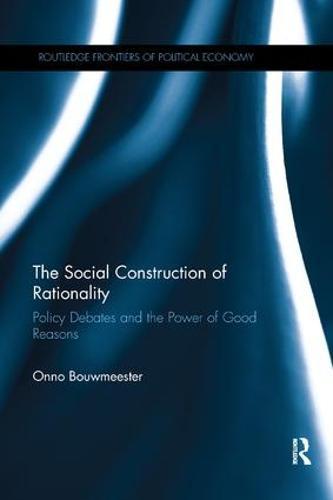Overview
There are many different forms of rationality. In current economic discourse the main focus is on instrumental rationality and optimizing, while organization scholars, behavioural economists and policy scientists focus more on bounded rationality and satisficing. The interplay with value rationality or expressive rationality is mainly discussed in philosophy and sociology, but never in an empirical way. This book shows that not one, but three different forms of rationality (subjective, social and instrumental) determine the final outcomes of strategic decisions executed by major organizations. Based on an argumentation analysis of six high-profile public debates, this book adds nuance to the concept of bounded rationality. The chapters show how it is socially constructed, and thus dependent on shared beliefs or knowledge, institutional context and personal interests. Three double case studies investigating the three rationalities illustrate how decision makers and stakeholders discuss the appropriateness of these rationalities for making decisions in different practice contexts. The first touches more on personal concerns, like wearing a niqab or looking at obscene art exposed in a public environment; the second investigates debates on improving the rights and position of specific minorities; and the third is based on the agreement on instrumental reasons for two kinds of investments, but the cost arguments are regarded less relevant when social norms or personal interests are violated. The Social Construction of Rationality is for those who study political economy, economic psychology and public policy, as well as economic theory and philosophy.
Full Product Details
Author: Onno Bouwmeester (University of Amsterdam, The Netherlands)
Publisher: Taylor & Francis Ltd
Imprint: Routledge
Weight: 0.312kg
ISBN: 9780367031176
ISBN 10: 0367031175
Pages: 204
Publication Date: 18 October 2018
Audience:
College/higher education
,
Tertiary & Higher Education
,
Undergraduate
Format: Paperback
Publisher's Status: Active
Availability: In Print

This item will be ordered in for you from one of our suppliers. Upon receipt, we will promptly dispatch it out to you. For in store availability, please contact us.
Reviews
In an era where behavioralism flourishes and has even reached the vestiges of mainstream economic thought, reconsideration of what rationality actually is, is well-timed. I would implore all readers whose minds and work is ocused on decision-making by individuals in isolation or in groups to consult this academic work. - Wilfred Dolfsma, Organization
Author Information
Onno Bouwmeester is Associate Professor in Management and Consulting at Vrije Universiteit Amsterdam, and responsible for a Master specialization in Management Consulting as part of business administration.




